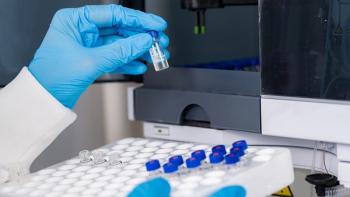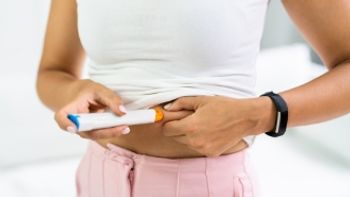
Analytical Challenges in Extractables Studies of Plastic Single-Use Bioprocess Bags
Join experts from SGS and Thermo Fisher Scientific to hear how to improve workflows for confident extractable and leachable studies. Live: North America: Tuesday, Oct. 31, 2017 | 11am EDT | 10am CDT / Europe: Tuesday, 7 Nov., 2017 | 9am GMT | 10am CET / On Demand available after airing until 7 Nov., 2018. Register free: http://www.pharmtech.com/pt_w/analytical
Register Free:
Single-use bioprocess bags are used for the preparation, storage and transport of biopharmaceutical solutions, intermediates, and final bulk products. Most of the bioprocess bags are made of plastics and those plastics additives and degradants may easily leach out into the drug products. As part of safety risk assessment, it is important to identify and quantify those extractables and leachables as they may pose safety risks to patients and/or change the efficacy of the medical products, new methods and guidelines are in draft for this important study, including USP <1663> and <1664> and upcoming USP <665> and <1665>.
This presentation will review a case study on an extractable study of plastic single-use bioprocess bags by using different solvent systems such as acidified water, alkaline water, PBS buffer, and organic/aqueous solvent mixtures to bracket and mimic pH values, ionic strength, and hydrophobicity of common process fluids. To obtain a comprehensive extractable profile, multiple analytical techniques were used to identify and quantify organic extractables, including headspace–gas chromatography–mass spectrometry/flame ionization detection (HS–GC–MS/FID) analysis for volatile organic compounds, GC-MS/FID analysis for semi-volatile organic compounds, and liquid chromatography (LC)–MS/ultraviolet (UV) analysis for non-volatile organic compounds.
The study revealed one unexpected finding: the vapor of the volatile organic solvents in the plastic bags could migrate into the solvents in other bags. Modified experiments were then applied to investigate the root cause and effectively eliminated the problem. In addition, the diversified extractable profiles were compared and discussed for different extraction solvents and sample preparation procedures. The results also demonstrate that high resolution accurate mass (HRAM) and MS/MS data facilitate confident compound identification and unknown compound structure elucidation.
Speakers:
Dr. Dujuan Lu, E&L Manager, SGS
Dr. Kate Comstock, Senior Marketing Specialist, Thermo Fisher Scientific
Date and Time:
North America: Tuesday, Oct. 31, 2017 | 11am EDT | 10am CDT
Europe: Tuesday, 7 Nov., 2017 | 9am GMT | 10am CET
After the final airing of the webcast 7 Oct., 2017 it will be available on demand until 7 Oct., 2018.
Sponsor: SGS and Thermo Fisher Scientific
Register Free:
Newsletter
Get the essential updates shaping the future of pharma manufacturing and compliance—subscribe today to Pharmaceutical Technology and never miss a breakthrough.




